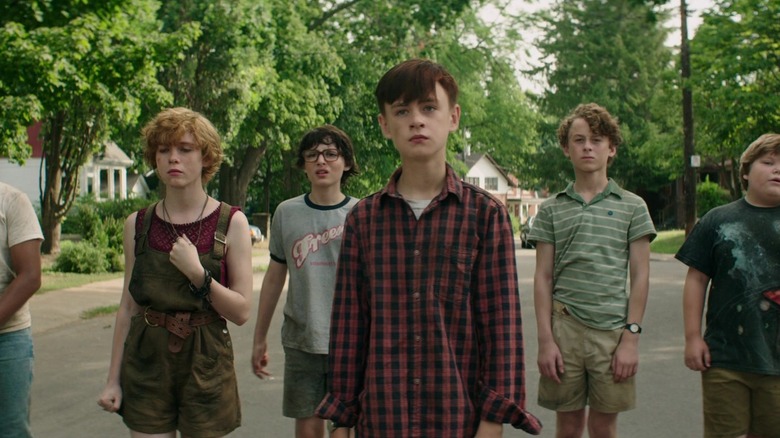The fictional city of Derry, Maine looms unsettlingly large in the novels of Stephen King. It isn’t as central to the author’s integrated narratives as the berg of Castle Rock (which spawned a mediocre Hulu series), but its role in two of his most celebrated books — “It” and “11/22/63” (which spawned a putrid Hulu series) — is of more than Easter egg importance.
It is the hoariest of cliches to say a city is “a character” in a story, but Derry is truly a spellbinding force unto itself in “It.” The city has a horrific history, starting with the disappearance of 340 settlers in 1741, continuing with the 1864 massacre of 120 citizens by Confederate sympathizers and including, among many other nasty incidents, the explosion of the Kitchener Ironworks (which killed 102 people in 1906). This is before Pennywise the clown began stalking the and killing the children of Derry in the late 1950s. A city can’t suffer that many catastrophes and play host to so much evil without the stain of these deeds seeping into its soil and flowering forth like some hideous chimera.
Even an outsider like Jake Ebbing, the high school English teacher who gets corralled into a time traveling mission to avert the assassination of President John F. Kennedy on November 22, 1963, can sense the ill-feeling as he approaches Derry in his Ford Sunliner. “There was something wrong with that town,” he says, “And I think I knew it from the first.”
While “11/22/63” ranks as one of King’s finest novels (if not his very best), the story threatens to hit a self-referential ditch when Jake’s trip to Derry brings him into contact with two precocious “tweenagers” dancing the Hellzapoppin version of the Lindy in a picnic area. When you’re reading the book for the first time, you might find yourself tensing up, perhaps even gritting your teeth in anticipatory cringe. Then he describes the pair as a boy with “tape-mended glasses” and the girl as a knockout of a redhead, and you realize he’s going for it.
We’re 139 pages into the epic-length “11/22/63,” and he’s courting disaster by bringing “It” kids Richie Tozier and Beverly Marsh into the saga. How does he pull it off?
Stephen King’s It and 11/22/63 go together like peas and carrots
Jake Ebbing is in Derry looking for the whereabouts of Frank Dunning so that he can avert a small-scale tragedy that derails the life of his present-day high school’s janitor, Harry. After we get a witheringly brief travelogue of 1958 Derry (which our protagonist concludes with “This was the town where Harry Dunning had grown up, and I hated it from the first”), Jake runs across Richie and Bev and gingerly enters their orbit to ask for their assistance.
There will be so much horror and bloodshed and sadness to come in this tale that it’s remarkable what King gets away with in this aside. Not only do Richie and Bev forward the plot, they also give us a glimpse of their post-Pennywise afterglow. And it is ever so lovely. Their exuberantly inept dancing, inside joke-laden banter, and otherwise unmitigated joy of being on the other end of an unfathomable nightmare gets you briefly floating on air. It’s just a respite from the awful weight Jake is taking on, but it’s unforced and true — which is not always something you can say about King.
When “11/22/63” was published in 2011, I’d been on a long break from reading the author because I grew frustrated with his unnecessarily long narratives that failed to make good on their typically juicy hooks. I gave “Under the Dome” a shot, and, upon getting burned again, thought I was done with King for good (though “Dome” spawned an intermittently enjoyable CBS series). “11/22/63” changed everything for me. As a writer, it reminded me that you can wander in the wilderness a good long while, but your true north is never lost for good. As a reader, it proved that the Easter egg mindset isn’t all bad. Callbacks can be organic and good — profoundly moving, even. They’re not easy to pull off, but when they work they can get you buzzing like nothing else.




/cdn.vox-cdn.com/uploads/chorus_asset/file/24401977/STK071_ACastro_apple_0001.jpg?w=238&resize=238,178&ssl=1)

